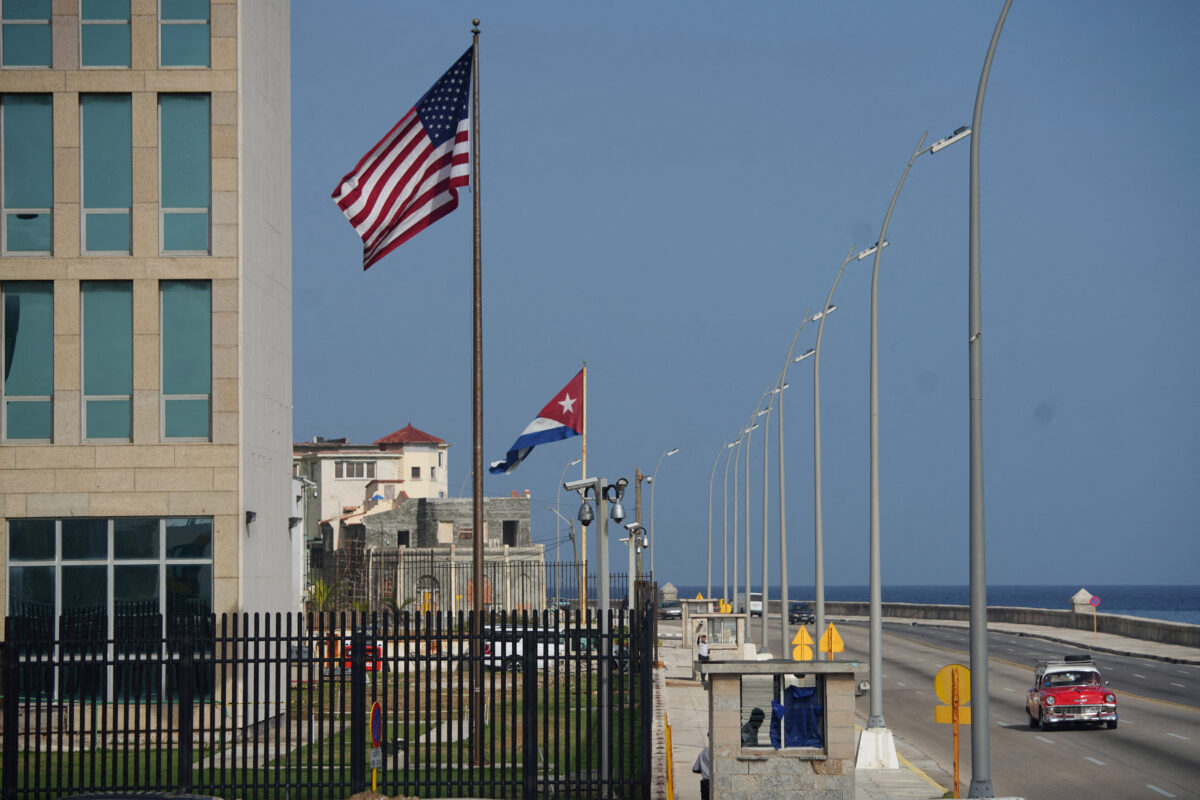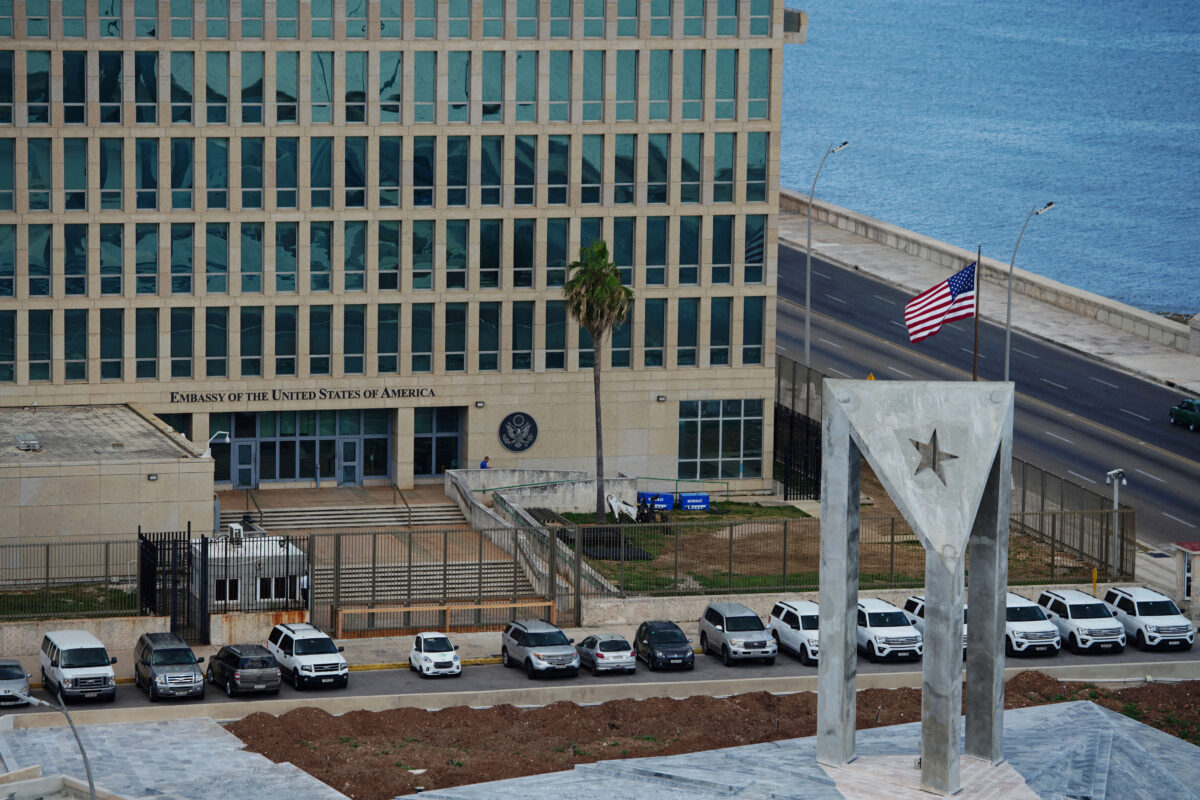US study finds no evidence of Havana syndrome brain injury

FILE PHOTO: A vintage car passes by the U.S. Embassy in Havana, Cuba, June 15, 2022. Picture taken on June 15, 2022. REUTERS/Alexandre Meneghini/File Photo
A U.S. government research team found no significant evidence of brain injury among a group of federal employees reporting symptoms of the “Havana syndrome” ailment that emerged in 2016, according to studies published in a medical journal on Monday.
The National Institutes of Health (NIH) researchers also found no differences in most clinical measures between a group of 86 employees and their adult family members reporting unusual health incidents and a matched group of healthy volunteers who had similar work assignments.
Symptoms of the mysterious ailment, first reported by U.S. embassy officials in the Cuban capital Havana and later afflicting diplomats, spies and other personnel worldwide, have included hearing noise and experiencing head pressure followed by headache, migraines, dizziness, and memory lapses.
“These individuals have symptoms that are real, distressing and very difficult to treat,” Dr. Leighton Chan, NIH Clinical Center acting chief scientific officer and lead study author, said on a call to discuss the findings published in JAMA.
Study participants, including personnel who had been stationed in Cuba, China, Vienna and the United States, underwent a battery of clinical, auditory, balance, visual, neuropsychological and blood testing. They also received different types of MRI scans aimed at investigating volume, structure and function of the brain.

FILE PHOTO: A view of the U.S. Embassy beside the Anti-Imperialist stage in Havana, Cuba, May 24, 2023. REUTERS/Alexandre Meneghini/File Photo
The findings, from two studies conducted from 2018 through 2022, do not match results from a different study done at the University of Pennsylvania and published in JAMA in 2019, which showed some subtle brain changes in those affected.
Chan said the NIH used more rigorous MRI imaging protocols and a control group more closely matched in terms of work activities and location. He said the studies could not rule out the chance that an outside event caused patient symptoms.
An accompanying JAMA editorial from Dr. David Relman, professor at Stanford University School of Medicine, noted that earlier studies concluded that some of the cases could be plausibly explained by exposure to radiofrequency energy.
He suggested the need for surveillance systems designed to rapidly detect early cases of the syndrome and clusters of concern across multiple U.S. government agencies and departments.
Chan said such an approach could end up causing more worry and distress, adversely affecting people’s health.
NIH researchers did find that more than a quarter of patients reporting symptoms developed a chronic condition called persistent postural-perceptual dizziness. They also reported significantly increased symptoms of fatigue, post-traumatic stress and depression, compared to the control group.
The findings from the MRI brain imaging study “should be some reassurance for patients,” since researchers did not find a link between unusual symptoms and neurodegenerative changes, said Louis French, study investigator and deputy director of the National Intrepid Center of Excellence at Walter Reed National Military Medical Center.
“The post-traumatic stress and mood symptoms reported are not surprising given the ongoing concerns of many of the participants,” he said.
U.S. intelligence agencies last year concluded that it was “very unlikely” a foreign adversary was responsible for the Havana syndrome cases.
The agencies suggested in that report that Havana syndrome symptoms reported by U.S. personnel were probably the result of things like pre-existing conditions, conventional illnesses and environmental factors.
“I don’t think there is anything in our study that contradicts that,” NIH’s Chan said.

